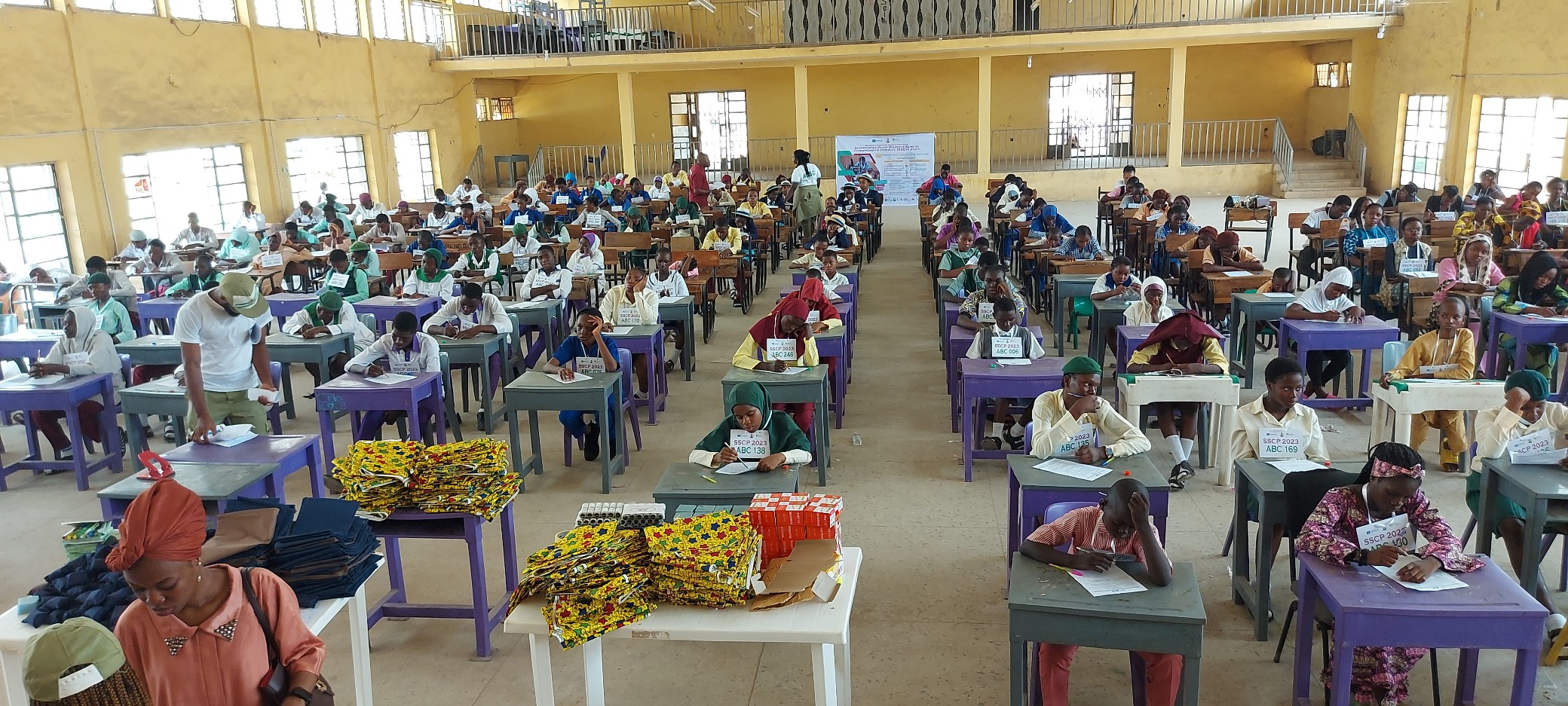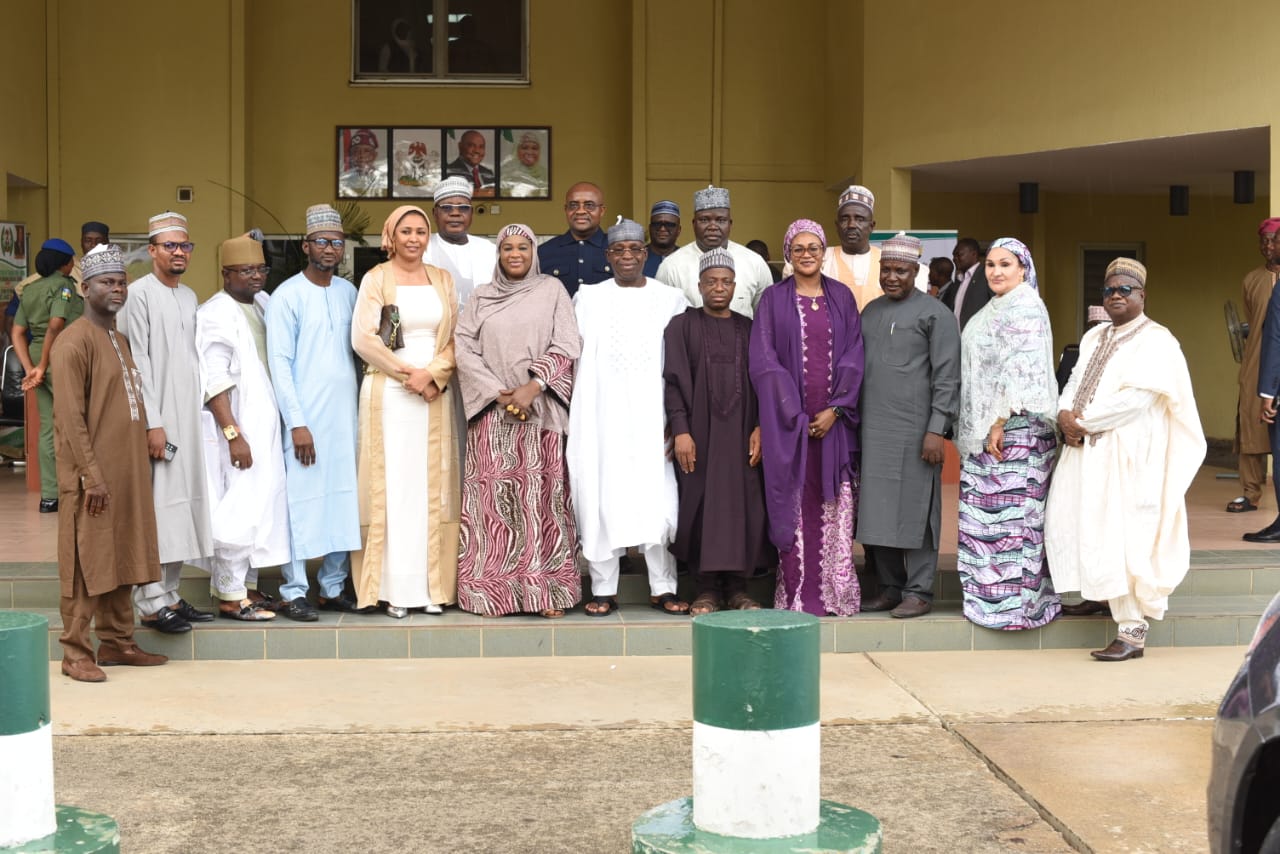***as over 1,000 students compete in sewing championship in FCT
Stakeholders in the education sector with one voice over the weekend lauded an initiative that has galvanized support across board for Vocational Education to be prioritized in order to provide alternative job opportunities for young graduates, secondary school leavers and school dropouts.

This they said will also serve to douse insecurity that has bedevilled the country over the past decade by keeping the youth busy and making them unavailable as willing tools in the hands of those that specialize in recruiting idle hands for terrorism.The project which is an Incentivised Pilot Schools Sewing Championship being organized and hosted by the FCT education secretariat is an initiative of the Ladi Memorial Foundation (LMF).The Championship held at the six Area Councils of AMAC, Bwari, Kuje, Kwali, Abaji and Gwagwalada simultenously had over 1000 contestants.The project, which is being supported by the United Nations Educational, Scientific and Cultural Organisation (UNESCO) and other partners, is targeted at motivating and harnessing creativity among young adults as well as identifying and promoting talented young skilled artisans and craftsmen of school age.The project which galvanised a lot of solidarity from the sector had the Representatives of the Ministry of Education, FCT education Secretariat, National Business, Technical Examination Board NABTEB, the Home Economics Teachers Association of Nigeria (HETAN) and the National Senior Secondary School Education Board in attendace.The stakeholders all agreed that for the country to wriggle itself out of the present insecurity, entrepreneurship education is the way to go hence the support the project has recieved

The Executive Director of LMF, Mrs Rosemary Osikoya, said participants will undergo both practical and theoretical tests after which the best nine will be selected from each of the six area councils for the next stage.
She said the initiative was designed to sensitize the general public and targeted stakeholders on the benefits of vocational education and livelihood skills development.
Osikoya who was a former Commissioner for education and later Commissioner for environment in Kogi State said the 54 winners that will emerge from the first phase of the competition will undergo a five-day intensive training at a boot camp after which three overall winners will emerge.
She said participants and participating schools that will emerge first, second and third at the end of the competition will get sewing machines and sewing equipment as prizes.
According to her, the targeted beneficiaries/groups include young adults aged 12-20 years who are enrolled in both formal learning centres (JSS and SSS) and out-of-school youths or learners in non-formal learning centres in Abuja.
She said the initiative will bring about the engagement of creativity, innovative traits and boundless energy of young adults in a profitable, productive, rewarding and Incentivised engagement which rewards excellent performance.
According to her one of the education policies established that before a child finishes from a junior secondary school he or she should have functional skills for labour at least he or she should be able to stand on his own as an artisan.
She said the student should be able to practice by himself, adding that if that had gone through, Nigeria would have been having more welders, plumbers and artisans.
However she observed that most of such jobs are being provided by non-Nigerians so the country has to go back to the drawing board
The president, FCT Home Economics Teachers Association of Nigeria (HETAN) Mrs Rifkatu Lami Yisa said she came to observe and see how well the competition was going and how the students were being organised.
On the fact that vocational education had since been relegated to the background in Nigeria she said the teachers have been living up to their biddings in various schools especially those teaching clothing and textile which are part sof the garment making. “In the garment making aspect of clothing and textile a child is expected to put into practice what he has learnt in the class either practically or even theoretically because even at WAEC he is expected to write exams.
“With this, Nigeria would have been better off as it will have created more entrepreneurs because it is able to make them self reliant, is not like the apprenticeship but talking academically and educationally. When students learn of this skills it is a good omen for the profession.
On its sustenance she said with what has been done it will speak and when they lend their voice, it will get some attention.
She admonished the participants not lose hope as someone must come first and second but is not the end.
“They should just learn from their weaknesses and their strengths, learn to identify where some errors occured so that they will be able to share their experiences
The Director National Business and Technical Examination Board (NABTEB) Ruth Gyeyok Popoola said,
“The world is now a skilled Centered world and the idea behind this project is to bring the skills out of our children and if you look at the combination, there are some of them that are not in school, some JSS and others SSS, that is to tell you that skills cuts across, it does not choose category, no age barrier, at any point in time one can acquire a skill whether educated or not educated.
“That is the message that we are trying to pass across by bringing out people from the formal and none formal education setting together for the competition
“That is to say children after Junior secondary school can start off a life saving skill which immediately after junior secondary if he or she can not continue may be a lifeline for that child even after his senior secondary school, some may proceed to the university while others may not, that skill they have acquired can be a life sustaining skill for them.”
On whether the Government has failed, she said, no, “if you go to the UK or US if you look at them the professor’s salary may not be up to that of a plumber because when you call a plumber to the house he determines and dictates how much you will pay him but the professor his salary is determined by his employer.
“Skilled people, especially our children who traveled abroad with their PhD they don’t use that to work what they use to work is the skill. Some come back to get skill and go back to use it to work.”
“This has just made us to realise what is good for the citizen. Government can not give everybody white collar jobs. If you look at the students being churned out every year from the university how many jobs would accommodate them. “With skill all these students in this competition will be employers of labour in the nearest future.”




